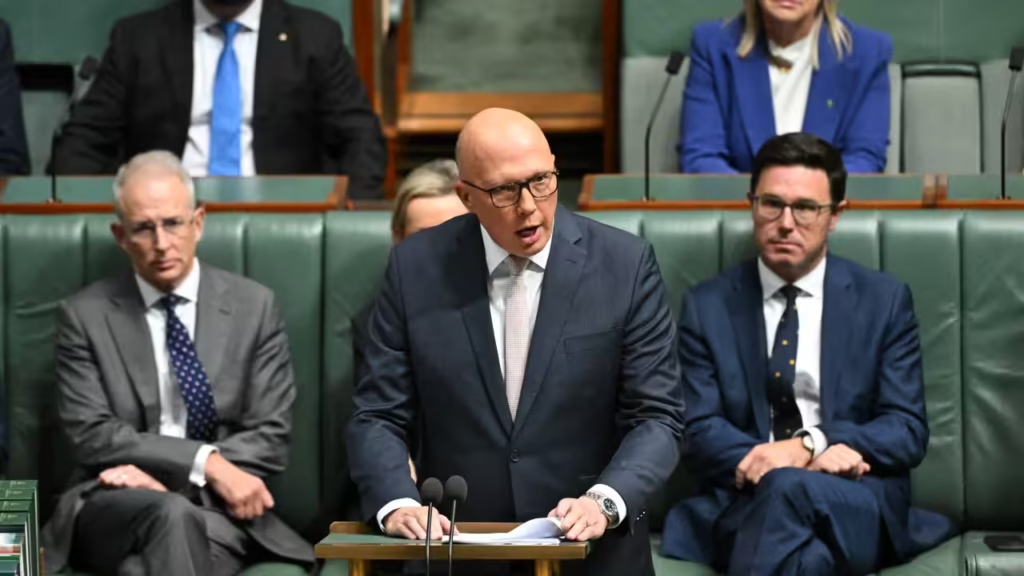The Nationals Leader, David Littleproud, has laid out the key policies of a prospective Dutton government, giving Australian voters a glimpse into what the future might hold.
In a recent interview with Sky News, Littleproud emphasized that a Coalition government is the “best hope” for Australians to return to prosperity amidst the current cost-of-living crisis.
A Return to Basics
The opposition has been pushing for a return to the “basics” of government, focusing on solving the nation’s problems without relying on excessive spending.
Littleproud argued that a Dutton-Littleproud government would provide strong leadership, prioritizing key areas such as defence, health, the NDIS, and aged care. He emphasized that the Coalition would “pull policy levers” rather than spend taxpayer money to address the nation’s issues.
Fiscal Responsibility
The Albanese government has faced criticism for its spending, with a $22 billion budget blowout and recent promises to spend billions on university loans, childcare, and a Rugby League team in Papua New Guinea.
In contrast, the Coalition has committed to reducing unnecessary spending and focusing on key areas. The opposition has also pointed to “indulgent” spending on the Voice referendum, green energy subsidies, and Welcome to Country ceremonies as areas to avoid costs.
Tackling the Housing Crisis
The housing crisis has been a major concern for Australians, and the Coalition has proposed a temporary two-year ban on foreign investors purchasing existing Australian homes.
This move aims to ensure that Australian people have first dibs on homes, especially in the current housing crisis.
The opposition has also committed to cutting the permanent migration program by 25% for two years, emphasizing the need for a sensible migration policy that determines who comes to the country, the skills they have, and where they want to live.
A New Approach to Energy
One of the most significant contrasts between the Albanese government and the opposition is their approach to Australia’s energy grid. While Labor has committed to an all-renewables energy approach, the Coalition is pushing for a mix of nuclear, renewables, and gas.
Littleproud argued that nuclear energy is essential for providing baseload power and setting up a legacy for the country. The Coalition’s nuclear plan has been subject to intense scrutiny, with a costing report claiming it would cost $263 billion less than Labor’s renewable rollout.
What’s at Stake?
The debate over energy policy has significant implications for Australia’s future. While the Treasury has argued that the Coalition’s strategy assumes a slower economic growth scenario, Labor has claimed that the nuclear energy strategy could cost the nation’s economy as much as $4 trillion by 2050.
As the election approaches, Australian voters will need to carefully consider the policies and visions presented by both the government and the opposition. One thing is clear: the future of Australia is at stake, and the choices made now will have a lasting impact on the country’s prosperity and growth.

